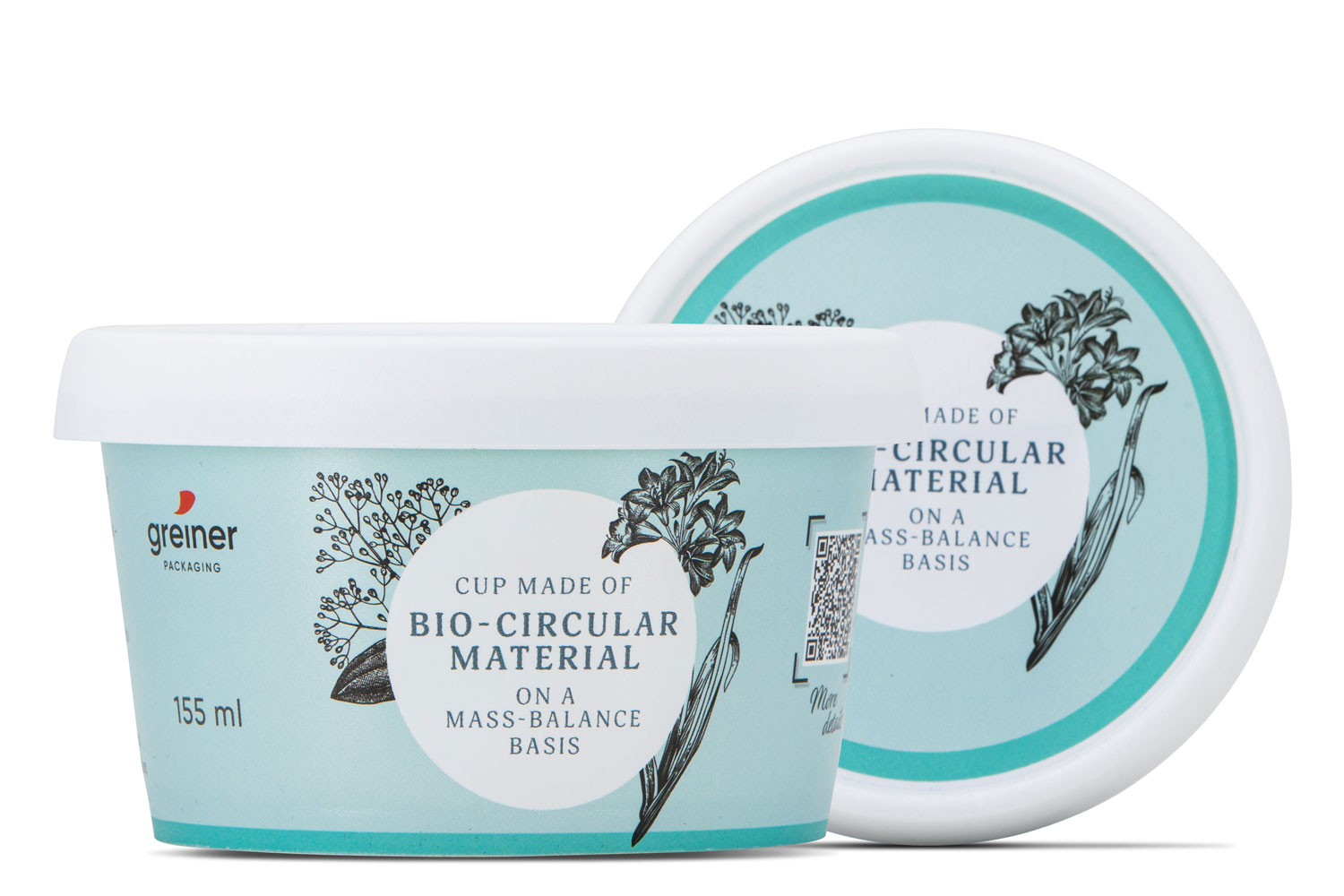
Greiner Packaging is pursuing various approaches to make its packaging solutions as sustainable as possible. One course of action is to use so-called circular materials – that is, renewable, non-fossil fuel feedstocks. For the first time, the packaging manufacturer has now produced a food cup made of premium polyolefins obtained exclusively from waste and residue streams. The Bornewables line of products is manufactured by Borealis, a leading supplier of polyolefins based in Vienna, Austria.
Unlike renewable raw materials produced with agricultural crops grown for food and livestock feed, the Bornewables products are made from second-generation (i.e., renewably sourced) feedstocks derived solely from waste and residue streams: from vegetable oil production as well as oil waste and residues, from the timber industry, or from the food industry – for instance, used cooking oil.
Same material performance, fast production changeover
The Bornewables offer the same characteristics as virgin polyolefin materials while boasting a substantially reduced carbon footprint.
Carbon footprint reduced by up to 120 percent
A life cycle analysis initiated by Borealis at its Kallo site in Belgium, showed that using Bornewables substantially reduces a product’s carbon footprint by at least 2.7 kg CO2eq for every kilogram of polymer. This represents a saving of up to 120 percent in comparison to fossil-based PP from Borealis and roughly equates to charging 2,700 smartphones in a year*. Moreover, using these premium polyolefins designed for circularity reduces the depletion of fossil resources by around 69 percent. The entire Bornewables line of products has been certified as part of the ISCC PLUS (International Sustainability & Carbon Certification) system. This chain of custody certification guarantees customers that the feedstock used in the material is certified as renewable and sustainably produced and can be traced to its point of origin. Certification is based on the mass balance approach, which means that a contribution to the use of chemically recycled or renewable materials is made in every material stream. A number of Greiner Packaging’s locations are also already ISCC PLUS certified.
A focus on design for recycling
The new prototype IML cups for dairy products are made of Bornewables monomaterial and were developed to be recycled as normal in conventional facilities – completely in line with the principle of design for recycling. The chemical structure of the PP material used in the cups is similar to that of standard plastic and can be recycled in the same loop as conventional polymers. This is a great example of how the packaging specialists at Greiner Packaging take into account sustainability from the very start.






